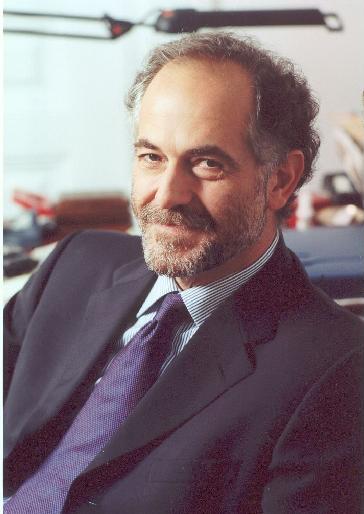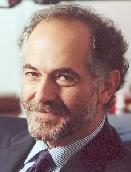November 2004
Special report on Feaco - Sesma Conference 2004 in Athens
Interview:
Constantinos Kastrinakis,
Vice President Kantor
KANTOR is one of the leading greek management consulting firms employing more than 100 people, 30% of which located in western capitals. The company is very active in the mediterranean area and the Balkan region. As a specialist of this broad area, Constantinos Kastrinakis elaborates on the importance of investing in international presence and why it is an opportunity to cooperate with hellenic consulting firms.

Mr. Kastrinakis, you are a Member of the Board of Sesma and the Vice President of KANTOR, a greek consultancy with strong activity in Europe and the Balkans. At the Feaco conference in Athens, KANTOR presented the current figures and trends of the European consultancy markets. Before exploring these figures, we would be pleased to know more about your company and its rapid international expansion.
Constantinos Kastrinakis: KANTOR is now 15 years old. It all started in 1989 in Athens, with three founders, two of us with consulting experience and one with 15 years oil sector expertise with Mobil and top experience as CEO of Exxon. This explains why today our activity is mainly focused on strategy with private companies. About 65% of our operations is carried out in Greece and the Balkans, the rest in Europe with an office in London, since 2002, a base in Brussels and a new office in Warsaw, both developed in 2004. KANTOR employs 100 consultants, 70 located in Greece, 15 in the UK and 15 in Belgium and Poland.
How does Kantor compare with other consultancies in Greece and Europe ?
Constantinos Kastrinakis: Our current Turnover is 13 M Euros. This places KANTOR at the third position in Greece. Compared to France we would be somewhere near the 24th position and the 30th in Germany. In terms of our operations we focus mostly on the private sector, the banking sector, and the manufacturing sector.
You have a strong position in the Balkans, how did it start ?
Constantinos Kastrinakis: Initially, we had some assignments in Kirghistan, Kasakhstan and Georgia. We are where the action is, which is why we have now a strong position in the Balkans: Romania, Bulgaria and FYROM but not Bosnia which is still too unstable. Having a strong presence in the whole Eastern European region is not necesseraly straightforward.
Can you explain this very last point ?
Constantinos Kastrinakis: The West and the East have been divided for a long time, but we must remember that the main cultural split comes from the fact that West is mostly Catholic and East is mostly Orthodox in countries like Russia, Ukraine, the Balkans and Greece. In these Orthodox countries, even Slovakia or Slovenia, it is not straightforward to give advice when you come from another Orthodox country like Greece. So you have to use Eastern consultants.
Do you mean that to conquer Eastern Europe you must have a fine tuned strategy ?
Constantinos Kastrinakis: We made three attempts to conquer the eastern countries. The fourth one we thought London would be OK, because in the East they consider that technology comes from the West!
Technology seems quite central to your activity, however you are a strategy and management consultancy. Did you try to support your activity through prime partnerships with technology consultants or some sort of engineering bureau?
Constantinos Kastrinakis: We were affiliated to Arthur D. Little from 1992 to 1997 under a partnership contract. Also, since 1998-1999 we are cooperating with the UK and German operations of Booz Allen Hamilton, which is one of the six big consulting firms in the world. They don’t have an office in Greece, which is why it makes it possible to cooperate with them.
When it comes to the future, could you give us an idea about what is next for KANTOR?
Constantinos Kastrinakis: We have a base in Western Europe, and in the East a base in Poland. Both these offices offer us a strong position in the Balkan region where our focus is Our next step is to move to Southeastern Europe. We went to Romania, we are now approaching Turkey and Egypt. We have already done some research in the nearby area, and more specifically in Palestine through European subsidies.
Are you going to tour the Mediterranean sea like the ancient Greeks?
Constantinos Kastrinakis: There is no stable Europe without a stable Mediterranean Community! Europe has a critical mass, as well as a problem of ageing for which we will have to rely on people from the South and the East. It is imperative to support democracy and growth around our neighbourhood.
That’s a "declaration of principle". As a very last question, I can’t resist asking you what could be the reason for a consultancy to cooperate with KANTOR and the other Hellenic consulting firms?
Constantinos Kastrinakis: Greek consultancies are an opportunity for companies that want to do business in the Balkan countries. Concerning KANTOR, I would say that we are strong in this area and we are now approaching Turkey. We must realise that Europe will finally includeTurkey. Also Greece has become a competitive place where the consulting market has been growing by more than 5% per year since the last three to four years, which is double the European consulting market growth. With the preparation of the Olympic Games, we reached a growth rate of 15% (see Feaco source for 2003). Now it’s going to slow down to 3-3,5%, which is still twice as fast as the average European consulting market.
Words collected by Bertrand Villeret
ConsultingNewsLine
Athens Astir Palace Vouliagmeni 22 October 2004
Constantinos Kastrinakis
Vice President
Kantor
Vice President
Kantor


